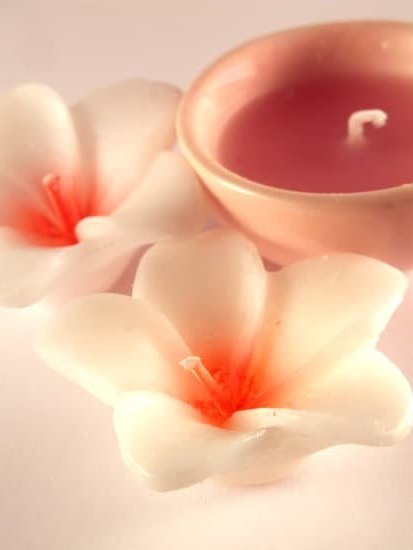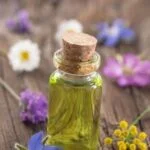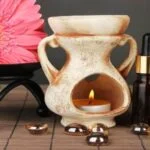Aromatherapy is a holistic healing treatment that uses natural plant extracts to promote health and well-being. This alternative therapy has been gaining popularity in Canada as more people are seeking natural remedies for various ailments. But the question remains, is aromatherapy regulated in Canada? In this article, we will delve into the world of aromatherapy, exploring its history, benefits, available products, current regulations, licensing requirements for practitioners, safety considerations, and the future of regulation in Canada.
Originating from ancient practices dating back thousands of years, aromatherapy involves the use of essential oils extracted from plants to improve physical, mental, and emotional health. In Canada, this practice has gained momentum as individuals are increasingly turning to natural solutions to enhance their overall well-being. The use of essential oils in aromatherapy can have various therapeutic effects on the body and mind, making it a sought-after method for relaxation and stress relief.
As the demand for aromatherapy grows in Canada, there comes a need to address the regulatory framework surrounding its practice. Currently, there are existing regulations and guidelines set by health authorities to ensure the safe and effective use of essential oils for therapeutic purposes.
Understanding these regulations is crucial for both consumers and practitioners to navigate the landscape of aromatherapy responsibly. Stay tuned as we uncover the intricacies of aromatherapy regulation in Canada and what it means for practitioners and enthusiasts alike.
History of Aromatherapy in Canada
Aromatherapy has a rich history in Canada, with roots that can be traced back to indigenous practices that utilized aromatic plants for healing purposes. First Nations communities in Canada have long incorporated the use of local plants and herbs for their medicinal properties, including through methods such as steam baths and infusions. This traditional knowledge has influenced the development of modern aromatherapy practices in the country.
In the late 20th century, aromatherapy gained popularity in Canada as part of the broader holistic health movement. The use of essential oils extracted from plants for their therapeutic benefits became more widely recognized and adopted by Canadians seeking natural alternatives to support their well-being. Aromatherapy practitioners began offering services such as massage therapy, inhalation treatments, and customized blends to address various physical and emotional concerns.
Today, aromatherapy is commonly integrated into spa treatments, yoga studios, healthcare facilities, and even home environments across Canada. The increased accessibility of essential oils and aromatherapy products has contributed to its mainstream appeal among Canadians looking to enhance their quality of life naturally. However, despite its widespread use, many individuals still wonder: is aromatherapy regulated in Canada?
Benefits of Aromatherapy
Aromatherapy has gained significant popularity in Canada in recent years as more people seek natural remedies for various physical, mental, and emotional ailments. The use of essential oils in aromatherapy is believed to promote overall well-being and enhance quality of life. These essential oils are extracted from plants and have been used for centuries across different cultures for their therapeutic properties.
In terms of physical benefits, essential oils used in aromatherapy can help with common issues such as headaches, muscle pain, and digestive problems. For example, peppermint oil is often used to alleviate headaches and lavender oil is known for its calming effects on the body. Mentally, aromatherapy is considered beneficial for reducing stress, anxiety, and promoting relaxation. Oils like chamomile and bergamot are commonly used to ease feelings of tension and promote a sense of calmness.
Emotionally, essential oils play a key role in aromatherapy by influencing mood and emotions through the limbic system in the brain. Certain scents such as citrus oils can uplift spirits, while others like sandalwood can help with grounding emotions. Overall, incorporating aromatherapy into daily routines through methods like diffusing essential oils or using them in massages can have a positive impact on one’s physical health, mental well-being, and emotional balance.
| Physical Benefits | Mental Benefits | Emotional Benefits |
|---|---|---|
| Relieve headaches | Reduce stress | Elevate mood |
| Soothe muscle pain | Alleviate anxiety | Promote relaxation |
| Aid with digestion | Enhance focus | Balance emotions |
Aromatherapy Products Available in Canada
Aromatherapy products have become increasingly popular in Canada, with a variety of essential oils, diffusers, and other related products readily available in the market. These products are sought after for their therapeutic benefits, promoting relaxation, stress relief, and overall well-being. Below are some of the different types of aromatherapy products that can be found in Canada:
- Essential Oils: Essential oils are the foundation of aromatherapy practice. They are highly concentrated plant extracts that capture the essence of a plant’s fragrance and therapeutic properties. In Canada, a diverse range of essential oils is available, including lavender for relaxation, peppermint for energy and focus, and tea tree for its antibacterial properties.
- Diffusers: Aromatherapy diffusers are devices that disperse essential oils into the air in a fine mist. There are various types of diffusers available in the Canadian market, such as ultrasonic diffusers that use water to create a gentle mist or nebulizing diffusers that disperse oil particles without water.
- Aromatherapy Candles: Aromatherapy candles combine the benefits of essential oils with the soothing ambiance of candlelight. These candles release pleasant fragrances when burned, creating a serene environment ideal for relaxation or meditation. Consumers in Canada can choose from an array of scents ranging from floral to woody notes.
While these are just a few examples of aromatherapy products available in Canada, it is crucial to ensure that consumers purchase high-quality and pure products to experience the full benefits of aromatherapy. With the growing demand for natural wellness solutions, more brands are introducing innovative aromatherapy products to cater to varying preferences and needs across the country.
Current Regulations on Aromatherapy in Canada
Health Canada Guidelines
Health Canada is the regulatory body responsible for overseeing the safety and efficacy of health products, including essential oils used in aromatherapy. While aromatherapy itself is not a regulated practice in Canada, the sale of essential oils falls under Health Canada’s regulations for natural health products.
Essential oils are considered natural health products and must be approved by Health Canada before they can be sold to consumers. This approval process ensures that essential oils meet specific quality and safety standards.
Labeling Requirements
Health Canada sets strict guidelines for the labeling of natural health products, including essential oils used in aromatherapy. These guidelines require clear and accurate information on product labels, including proper directions for use, cautionary statements, and potential side effects. Additionally, labels must include information on any allergens present in the product to protect consumers with sensitivities or allergies. By adhering to these labeling requirements, consumers can make informed decisions about using essential oils in their aromatherapy practices.
Professional Associations
While there are no specific regulations for practicing aromatherapy in Canada, professional associations such as the Canadian Federation of Aromatherapists (CFA) set their own standards and guidelines for members. These associations often require their members to adhere to a code of ethics, maintain high levels of proficiency through continuing education, and carry liability insurance. By being a member of a reputable professional association, aromatherapists can demonstrate their commitment to upholding professional standards in their practice.
Licensing and Certification Requirements for Aromatherapists in Canada
Aromatherapy is a holistic healing treatment that uses natural plant extracts to promote health and well-being. The practice has been gaining popularity in Canada, with more people turning to essential oils for various physical, mental, and emotional benefits. However, one important question that arises is: is aromatherapy regulated in Canada?
In Canada, the practice of aromatherapy is not specifically regulated by a single governing body. However, there are certain guidelines and regulations set by health authorities to ensure the safe practice of aromatherapy. Aromatherapists in Canada are not required to obtain a specific license to practice; however, it is highly recommended that practitioners undergo proper training and certification to ensure they have the knowledge and skills needed to provide safe and effective treatments.
For individuals looking to become professional aromatherapists in Canada, there are various training programs and certification courses available. These programs usually cover topics such as the properties of essential oils, blending techniques, safety precautions, client consultation skills, and ethical considerations. Some reputable organizations offer certification exams for aromatherapists to demonstrate their proficiency in the field. Additionally, continuing education opportunities are also available for certified aromatherapists to stay updated on the latest research and trends in the industry.
Overall, while there may not be strict licensing requirements for practicing aromatherapy in Canada, obtaining proper training and certification is essential for aspiring aromatherapists. This not only ensures that practitioners have the necessary expertise to provide safe treatments but also helps maintain professionalism within the field. As the popularity of aromatherapy continues to grow in Canada, it is crucial for practitioners to uphold high standards of practice through continuous learning and adherence to safety protocols.
Safety Considerations in Aromatherapy
Aromatherapy has gained significant popularity in Canada as more individuals seek natural remedies for a variety of physical, mental, and emotional issues. However, many are not aware of the potential risks associated with aromatherapy practices when not used properly. It is essential to understand the safety considerations involved in utilizing essential oils to ensure the well-being of practitioners and clients alike.
Safe Usage of Essential Oils
One key aspect of safe aromatherapy practice is understanding the proper usage and dilution of essential oils. Essential oils are highly concentrated plant extracts that can cause skin irritation or even allergic reactions if used undiluted or in excessive amounts. It is crucial to follow recommended guidelines for diluting essential oils in carrier oils before applying them to the skin or using them in diffusers.
Potential Risks Associated With Aromatherapy Practices
While aromatherapy can offer numerous benefits, there are also potential risks that need to be considered. Some essential oils may interact with medications, trigger respiratory issues in sensitive individuals, or cause adverse effects when used incorrectly. Certain essential oils are not suitable for pregnant women, children, or individuals with specific health conditions. It is vital for aromatherapists to conduct thorough consultations and assessments to ensure the safety and well-being of their clients.
Professional Guidance and Education
To mitigate risks associated with aromatherapy practices, seeking professional guidance from certified aromatherapists is highly recommended. These professionals have undergone training and education on the proper use of essential oils, contraindications, and safety precautions. Additionally, continuing education in the field of aromatherapy can help practitioners stay informed about best practices and new research findings. As awareness grows regarding these safety considerations, it is crucial for both practitioners and consumers to prioritize safe usage of essential oils in aromatherapy treatments.
Future of Aromatherapy Regulation in Canada
In conclusion, the question “Is aromatherapy regulated in Canada?” is a complex one that necessitates a thorough examination of the current state of regulatory affairs.
As of now, aromatherapy itself is not strictly regulated by Health Canada, but certain aspects of the practice fall under existing regulations for natural health products and the safe use of essential oils. However, there is a growing recognition of the need for clearer guidelines and oversight to ensure the safety and efficacy of aromatherapy practices in Canada.
Moving forward, it is likely that we will see more concerted efforts towards developing specific regulations pertaining to aromatherapy in Canada. This could involve establishing standards for training and certification of aromatherapists to ensure that practitioners have the necessary knowledge and skills to provide safe and effective care to clients. Additionally, there may be increased scrutiny on the marketing and labeling of aromatherapy products to prevent misleading claims or unsafe practices.
Overall, while aromatherapy continues to gain popularity in Canada as a holistic approach to wellness, there is also an increasing awareness of the need for proper regulation to protect both practitioners and consumers. It is essential for stakeholders in the aromatherapy industry, including government bodies, professional associations, and educators, to work together towards setting clear guidelines and standards that promote best practices and ensure the safety and effectiveness of aromatherapy treatments in Canada.
Frequently Asked Questions
Do You Need a License to Sell Essential Oils in Canada?
In Canada, you do not need a specific license to sell essential oils since they are considered cosmetics or natural health products. However, it is important to ensure compliance with any regulations regarding labeling and safety standards.
Is Aromatherapy Practiced in Canada?
Aromatherapy is indeed practiced in Canada as a complementary therapy for various health conditions and wellness purposes. Many practitioners offer aromatherapy services, blending essential oils for massage, diffusing, and inhalation to promote relaxation and healing.
Who Regulates the Practice of Aromatherapy?
The practice of aromatherapy in Canada is regulated by different organizations depending on the context. For example, healthcare professionals like massage therapists may incorporate aromatherapy into their practice under their respective regulatory bodies’ guidelines. Additionally, there are associations specifically dedicated to aromatherapy that provide certification and standards for practitioners.

Are you looking for a natural way to improve your health and wellbeing?
If so, aromatherapy may be the answer for you.





